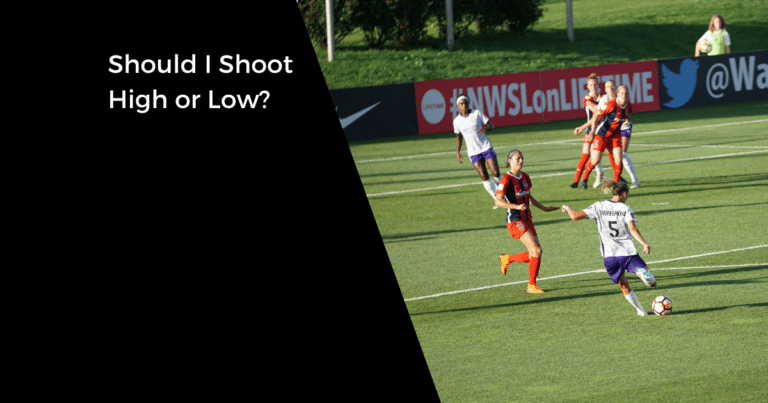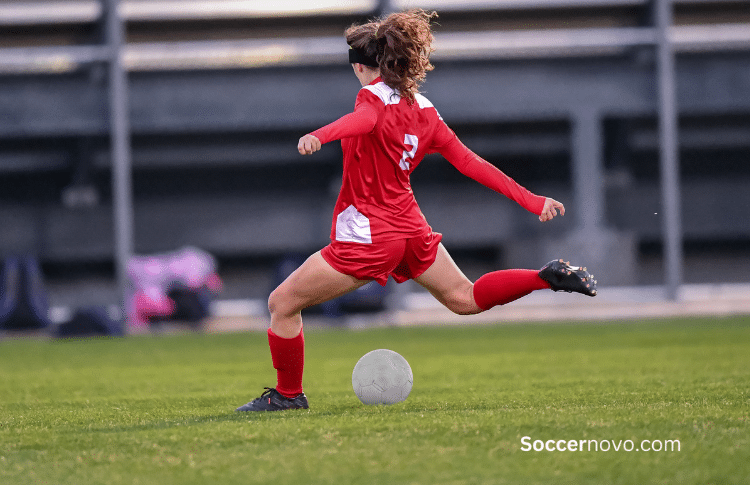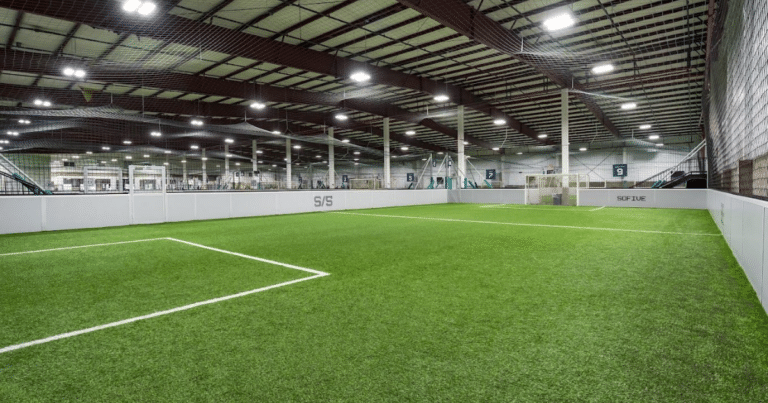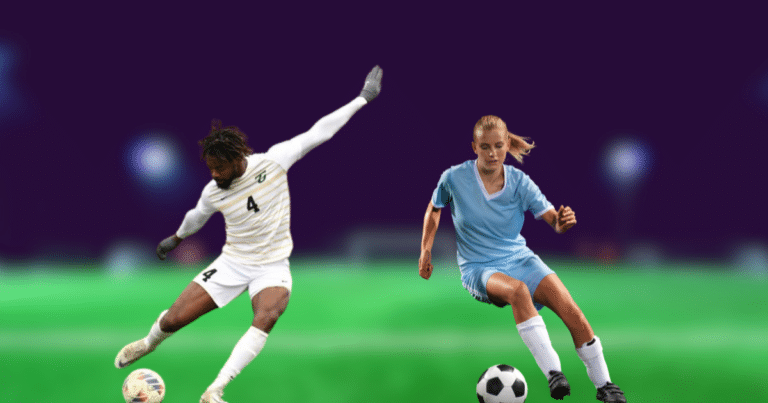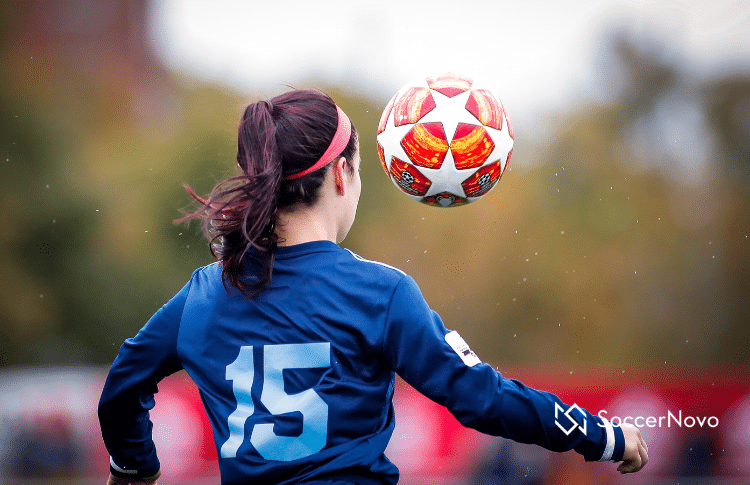Ultimate List of Soccer Skills to Master
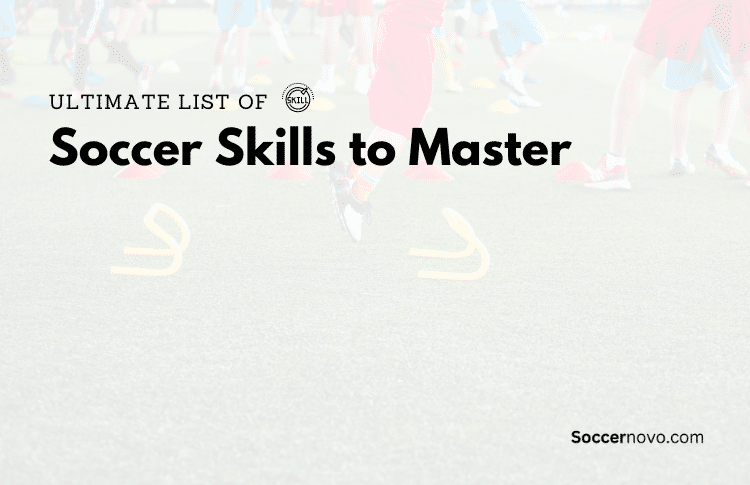
Watching professional soccer players in action is amazing. They make seemingly impossible moves look simple. Their incredible soccer skills are a work of art as they compete for almost 90+ minutes.

These results couldn’t have been achieved without training in the fundamentals of soccer, which are essential for success, especially at the highest levels.
Key Takeaways From This Article:
- All youth players should first be working on ball control, passing, footwork, and stamina. Secondary is shooting, discipline, and positioning.
- Players that work on fundamentals today, become much better faster.
- Improving as a player starts with having the right mindset.
Soccer is based on a wide variety of abilities and techniques beyond simply dribbling and passing.
There are specific skills that are more important for certain positions in soccer than others, but the skill sets required to become elite are universal.

The more well-rounded you are as a soccer player, the better prepared you will be to maximize your natural talent. While you train, it’s important to stay patient and trust the process!
My goal in this article is to provide you with a few pointers to help you become a better soccer player so you can enjoy the game more.
Skills Every Player Should Work On
These are the seven key skills in soccer that the best players in the world have mastered to reach the top.
Working on your game every day can elevate your soccer game to an entirely new level. It’s important to realize that everything is going to be a work in progress. Having a growth mindset as you pursue these soccer skills will help you understand that work needs to be done.
Also, as a blossoming athlete, there may be times when you have to sacrifice things. For example, instead of Fortnite, you may have to go to your backyard to do one hour of training instead. Compounded over time, this one hour can turn you into a much better player. One hour of video games every day will just leave you with wasted time.
The choice is up to you. Now, let’s get into it!
Working on Ball Control
Being able to control the ball well is a crucial skill for any soccer player to learn. Having the ability to play with the ball at your feet is essential, so it will need to be one of the first things you learn.
Just think about Messi and his team’s advantage when the ball is played to him. He’s a threat every match to attack, pass and shoot.
In soccer terms, “ball control” means to maintain possession of the ball.
By working on your dribbling and ball control, you’ll be able to move laterally, backward, and at different paces. This is dangerous when you are on offense.
Receiving the soccer ball is also crucial to controlling the ball and maintaining possession. This is called your touch. In order to successfully receive a pass, you must be able to stop the ball so that it does not bounce back to the initial passer or the opposing defender.
After mastering the fundamentals, progressing to more advanced forms of control over the ball is what it takes to make the ball an extension of your feet and move across the field smoothly.
Mastering ball control skills requires lots of time and effort. Not only do you have to master foot skills but you’ll also want to keep your head up and on a swivel while doing so.
As a young soccer player, working on your ball control can give you a solid foundation that can be used for years to come.
Not sure where to start? Find a wall or rebounder and just pass back and forth to yourself. Doing this 50-100 times per day will surely improve your touch.
Also, consider these six dribbling moves you can work on today. Practice these out in your backyard and in training sessions.
Developing Passing Skills in Soccer

Individual ball control is crucial, but teamwork wins soccer games. You must learn how to pass the ball with purpose if you want to be a team player.
The ability to pass the ball effectively ensures that your teammates can receive it easily.
One of the things I see in youth soccer games are passes that are bouncing. Receiving players have a difficult time seeing it through cleanly. It’s important to keep the ball on the ground. Simple in concept but it takes repetition and awareness.
Surprisingly, a lot of skill is involved in passing the soccer ball. You’ll have to have the right velocity, timing, and distance in order to make a precise pass. Mix in quick defenders and you’ll have to do it in less time or with fewer touches.
To be a great facilitator, a player must be able to pass the ball both short and long distances with preciseness.
Stamina and Speed for Young Athletes
It’s no secret that soccer players must be physically fit in order to perform well throughout a game. In fact, on average, soccer players run 7 miles per 90-minute match.
The physical demands of a soccer game, which include extensive short and long-distance running, can take a toll physically and mentally.
Regardless of a player’s position (maybe except a goalie) on the field, all soccer players must have stamina and speed. This can be the difference between good and great players.
Those players who get tired fast will often make silly mistakes that are avoidable.
Stamina and speed are also simple to increase and maintain, as you can devote a small portion of your training time to activities like running sprints, long-distance, hills, etc. This is the ‘boring work’ we talk about that no one sees but makes a huge difference.
In order to play at your maximum potential, you will need to increase your stamina while maintaining high levels of concentration and decision-making.
Footwork in Soccer
Improving your footwork is similar to ball control but affects other aspects of the game. A player with solid footwork can turn with the ball quicker, can get their foot into dribblers, is able to find holes in the defense, and has more balance.
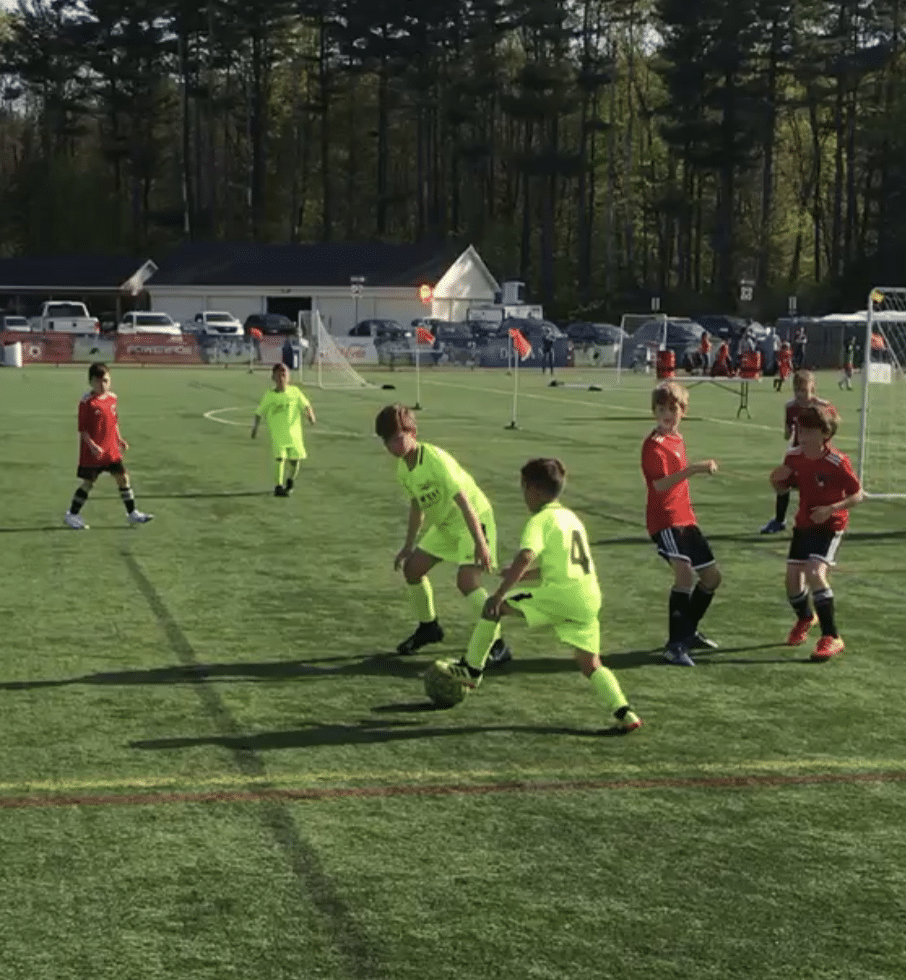
Elite soccer players are always working to improve their footwork. Their footwork gives them an advantage when it comes to maneuvering in tight spaces to either come away with the ball or slice through a defense.
Proper footwork established at an early age makes other aspects of soccer easier including accurate passing, shooting, and crossing the ball across the field in a single motion.
It also helps defensive players stay balanced and maintain proper positioning to make on-ball tackles.
If you want to take your footwork to the next level, you need to put in the time and effort to improve the techniques involved and practice those motions over and over again. I personally think being a multi-sport athlete can help in this area. Sports like basketball requires great footwork.
Shooting a Soccer Ball Properly
Scoring goals is the game’s primary objective and the key to coming out on top in a soccer match.
The ability to accurately aim and strike the ball is necessary if you want to reach your full potential as a soccer player. This is especially important if you want to be a striker!
There aren’t many opportunities to score a goal in a soccer game, so mastering your technique can set you apart from your competitors.
It’s crucial to dial in your aim through repetition. You should be practicing shooting on the move so you’re mimicking real pressure. Muscle memory can be developed and scoring can become second nature.
Here’s a great video on shooting a soccer ball.
Team Positioning
Eleven players make up a soccer team, and they all play important roles based on their assigned positions.
The ability to strategically place yourself and gauge your surroundings is often undervalued. Soccer players frequently have to make split-second decisions, such as whether to rush an open area in their own defense or take advantage of space.
Keeping tabs on where your teammates are and where they need you to be will help you determine the best course of action to maximize your contribution to the team and increase your chances of winning.
Working on positioning will come with team training and more matches. Keeping your shape as a team is crucial to ensure field players are aligned with the coach’s strategies.
For some players, video analysis can be a great educational tool to improve field positioning.
Having Discipline in Soccer
Intangibles are important.
Mastering the previous skills will put you in a position to succeed but without proper discipline you will not be able to push through training when it gets difficult or boring.
Hard work and daily practice are essential if you want to advance your skills and technique to the highest levels.
Given the time commitment and potential monotony of the process, it’s simple to lose your motivation.
Discipline, on the other hand, can see you through to the other side, where you emerge as a better soccer player.
The greatest soccer players in the world are consistently praised for their tireless effort, unwavering commitment, optimistic demeanor, and determination to succeed despite overcoming challenges.
That’s what it takes to get to the top, and that’s what it takes to become your best soccer self.
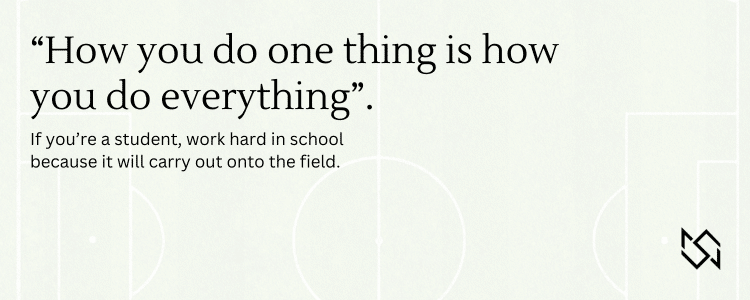
Also remember, “How you do one thing is how you do everything”. If you’re a student, work hard in school because it will carry out onto the field.
Other Soccer Skills to Improve
At SoccerNovo, we like to keep things simple. For this reason, the previous skills mentioned will help you become an overall better soccer player. But, there are other aspects of the game that should be worked on. They include:
- Trapping
- Heading
- Turning
- Tackling
- Goalkeeping
- Change of pace
- Checking your shoulder
These will naturally get better the more you play so we don’t want to put a huge emphasis on them.
You will get further along if you continue working on your ball control, passing, speed/stamina, footwork, shooting, positioning, and discipline.
Exercises for Soccer Players
The following activities are some exercises that will indirectly help you improve your soccer skills.
- Jump Roping: Call me old-fashioned but jumping rope is an effective way to improve agility, coordination, and footwork, as well as increase speed and stamina. Start by jumping for 30 second intervals, gradually increasing the time you can jump for each session. You can also add in different jumps, such as double-unders or two-feet-together jumps, to mix it up and ensure you stay focused while doing the exercise.
- Plyometric Drills: These explosive exercises help build power and explosiveness on the field, which helps when trying to gain that extra burst of energy needed during a game. Examples include box jumps, squat jumps, broad jumps, single-leg hops, etc. When performing these exercises, pay close attention to your form, as this will help you maximize the benefits of each activity.
- Agility Ladders: This exercise is great for improving coordination and agility. You can perform different exercises with the ladder, such as running in and out of the squares or side shuffles, to challenge your body and get better at changing directions quickly. Start by performing these drills slowly and gradually increasing your speed over time to ensure you stay focused on form rather than just moving faster.
- Core Workouts: A strong core is essential in soccer since it helps improve balance and stability while playing. Exercises such as planks, mountain climbers, Russian twists, sit-ups, etc., are all great options to incorporate into your routine to work on your core strength. Done right, this should only take up 5-minutes of your day.
Word of Advice
It is important to understand that these essential soccer skills will develop at various times during a player’s career.
Setting a foundation at an early age can help you develop quicker. It’s always easier to progress forward than to revert backward.
I’ve seen many examples where an 8 year-old girl or boy is much better than their competition. They understand this and rely heavily on their natural ability. At the same time, another player on that same team is in the middle of the pack and works hard to get better. They play in the backyard, at recess, and pretty much whenever they can. Guess who is a more refined player by age 10? The latter.
As you embark on your playing journey, remember to not take it too seriously. The more enjoyable you can make it, the more frequently you will train. The more you train, the better you get. The better you get, the more opportunities present themselves to you.
Common Questions
There are many skills in soccer but these 7 are very beneficial: ball control, passing, shooting, footwork, speed & stamina, positioning, and discipline.
You will never master a soccer skill because there are so many different situations that you unexpectedly run into.
It is if you want to continue playing. Also, it is worth it if you love the sport. Soccer, like all sports, teaches invaluable life lessons!

Written By: SoccerNovo
SoccerNovo is an independent youth soccer media brand built to help parents, players, and coaches better understand the game and the pathways available in U.S. soccer. Our mission is to make youth soccer simpler, clearer, and more accessible for everyone involved in it.
Let’s connect


